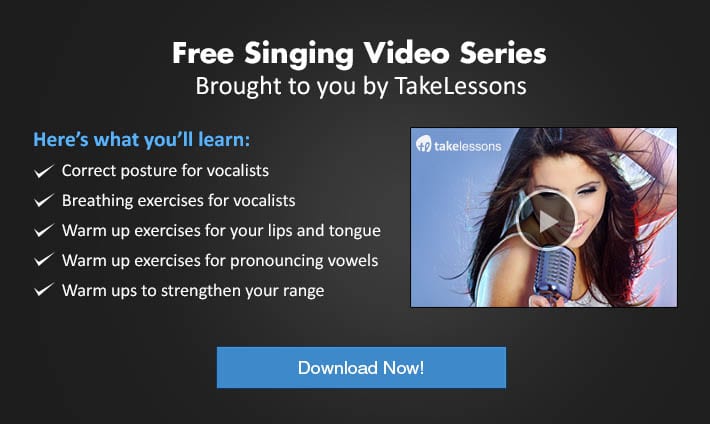Struggling to reach your lower register when you practice your vocal exercises or sing your favorite songs? Check out these helpful singing tips from Augustine, FL voice teacher Heather L...
You know, it seems that we singers talk all the time about how tough our higher register is (and it can be). But as a voice teacher and a singer myself, I have to admit that the lower register gives many of us just as much reason for frustration. Often, in performance or in recordings, even of acclaimed, famous singers, the lower notes sound weak and faint. Sometimes, they’re barely audible. But when they’re sung with both confidence and care, they can be truly beautiful.
Most importantly, whenever singers encounter any challenge in their voice studies, it’s especially important to remember not to force sound in any register. This forcing often leads to more frustration, then tension, tightness, and pain, and sometimes even permanent injury. You might have heard this a lot in reference to your higher register, but not necessarily to your lower, and yet it’s just as important. It would be like forcing yourself to do a gymnastic split before you were really ready to do it. You could hurt yourself.
So, instead, follow these singing tips for reaching your lower register:
1. Be gentle.
I realize that this is a repetition of what you just read, but it can’t be reiterated enough. When low notes aren’t treated gently, in addition to the dangers listed above, you could sound like you’re bellowing or yelling.
2. But don’t be too gentle.
The opposite of forcing is sometimes a whispering sound or an ill-supported phonation. This can be just as damaging to the vocal folds as forcing, over time. Use an assertive and warm tone.
3. Activate your core.
Use lip trills, or lip bubbles, to get your breath going and your muscles warmed up. There are 37 different muscles involved in your breathing. Get them all going!
4. Fill up your “tire.”
When you breathe, it’s not only your tummy and the front of your torso that fills up, but also your back! Imagine yourself filling up with air all the way around, just like a bicycle tire, and take five deep breaths.
5. Slowly, “walk down the stairs.”
6. Sing the same patterns on “yee.”
With a relaxed, slack jaw, go back to the middle register and sing descending notes slowly, continuing to pay attention to your sensations and acknowledging what they’re telling you. If you sing down to a spot that doesn’t feel good, then go back up.
For a visual representation of an exercise involving an E vowel, check out the video below. This is a good exercise to practice before attempting those low notes!
7. Sing the same pattern yet again on “yoo.”
The vowel sound “oo” is the least warm of all of them. So as you sing it, focus on a warm, rich, and round sound.
8. Sing a low passage.
If you have a song that has an especially low passage, then try it on lip trills first, then on the words. The lip trills should ensure that you have proper support.
These singing tips for reaching your lower register should be just what you need to tackle those deep, rich sounds. Remember, your voice is completely unique. You will sound different from everyone else, including your favorite singers. That’s part of what makes you special and exactly why listening to yourself without judgement is key. As always, be yourself, and sing with your own voice.
 Heather L. teaches singing, piano, acting, and more in Saint Augustine, FL, as well as through online lessons. She is a graduate of the prestigious Westminster Choir College in Princeton, New Jersey, and has performed with the New York and Royal Philharmonics, the New Jersey and Virginia Symphonies, the American Boy Choir, and the internationally renowned opera star Andrea Bocelli. Learn more about Heather here!
Heather L. teaches singing, piano, acting, and more in Saint Augustine, FL, as well as through online lessons. She is a graduate of the prestigious Westminster Choir College in Princeton, New Jersey, and has performed with the New York and Royal Philharmonics, the New Jersey and Virginia Symphonies, the American Boy Choir, and the internationally renowned opera star Andrea Bocelli. Learn more about Heather here!
Photo by ramesh Iyanswamy
Suzy S.


